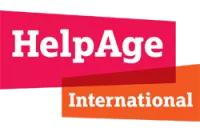Insights on the G7 Communique
This year’s Group of Seven (G7) Presidency is under the Italian leadership. In its 2024 agenda, the year-long Italian tenure - which involves technical, ministerial, and high-level discussions - has focused on emerging economies, the climate-energy…
Published:
Time to read: 6 minutes
This year’s Group of Seven (G7) Presidency is under the Italian leadership. In its 2024 agenda, the year-long Italian tenure - which involves technical, ministerial, and high-level discussions - has focused on emerging economies, the climate-energy nexus, food security, and artificial intelligence, among other key worldwide challenges. The commitments from these advanced economies and democracies are reflected in the G7 Communique, as an outcome of the recent G7 Apulia Summit.
Why does this matter?
Besides representing an aggregated 40% share of the world’s total gross domestic product (GDP), and self-proclaiming ‘the biggest democracies’, these seven countries are influential and shape the global agenda. Despite the progressive decline in economic power, the G7 continues to unite the world’s biggest humanitarian donors and geopolitical powerholders affecting the aid sector. The Italian Presidency has focused its attention on regions such as the Middle East, Africa, and Indo-Pacific, as well as Russia’s war of aggression on Ukraine and its cascading effects in Europe and in the world.
What is welcome?
The G7 Foreign Minister’s Meeting Communiques was published in April, the three sets of communiques had distinct and unique focuses, namely the Middle East, Ukraine, and addressing global challenges. This document served as a basis for discussions and commitments from the G7 leaders.
We welcome the attention placed on the humanitarian crises happening in the Middle East, including the horrific humanitarian situation in Gaza. G7 leaders called for a ceasefire, the release of all hostages, an increase in the flow of humanitarian assistance, and adherence to International Humanitarian Law. Ukraine remains a priority for the G7, there is a recommitment to economic, humanitarian, and development support. It is also positive to see that crises such as Sudan, Haiti, and Venezuela were addressed in the communique.
What is missing?
We failed to see any acknowledgment or commitment calling for the respect of humanitarian principles as the corner stone for humanitarian assistance, although these principles were mentioned in the G7 Foreign Minister’s Meeting Communique. Another omission of the G7 communique was the public recognition of the world leaders' responsibility to effectively support protracted crises such as those in the Horn of Africa, Somalia, Ethiopia, and the Democratic Republic of Congo. Again, these crises were present in the G7 Foreign Ministers' Meeting Communique. However, many more under-the-radar crises happen every day in places where there is little geopolitical interest, and they remain invisible to powerful nations.
There was no mention or recognition of the deep systemic problems the humanitarian sector faces, such as slow and reactive funding, centralised decision making, and concentration of power and resources in a handful of international actors. It is regrettable to see that there was no mention of anticipatory action, compared to last year’s communique when it was referred to as a key area to strengthen as part of risk reduction efforts. It seems like this communique could have better profiled the paramount collaboration needed between humanitarian, development, peace, and climate actors, especially as crises are becoming more complex, long, and underfunded. Unfortunately, the communique also missed an opportunity to expand the understanding and commitment of the largest humanitarian donors to better address and protect at-risk populations from climate-related hazards that pose a threat to further exacerbate already vulnerable and fragile contexts.
Voices of our members
HelpAge International
The communique is missing sufficient references to population ageing, considering it is one of the defining trends of our time. We would welcome a call reaffirming the importance of extending universal health coverage to all older people, including those in humanitarian settings. This includes access to the full continuum of promotive, preventive, curative, rehabilitative and palliative care services, as well as specialised care and the sustainable provision of long-term care and support.
While we welcome references to the importance of whole-of-society approaches to tackle energy, climate and environment crises, we are disappointed that language around the meaningful participation of older people and people with disabilities is not specifically included. Similarly, we question why only younger generations are referred to as actors promoting climate action and driving a more sustainable future – with the intersection of population ageing and climate change, all generations have a role to play in promoting climate action. Therefore, we need to empower the voices of all generations and amplify youth-led initiatives as well as initiatives led by Older People’s Associations, enhance lifelong educational opportunities, and bolster joint advocacy efforts
We are concerned that the G7 communique welcomes the updated G7 Dashboard on Gender Gaps as satisfactory, although it only focuses on sex and gender-disaggregated data, without including the ageing lens (and with gaps in data on older age). With population ageing, an increasing number of women globally will be excluded by data systems which currently fail to collect data on older women or render them invisible through a lack of sex, age and disability disaggregation. These women have a right to be counted.
Social protection is completely missing from the document. In LMICs, sources of income are often inadequate, employment is often informal, and poverty and susceptibility to shocks and crises tend to increase in older age. An estimated four billion people worldwide are currently left without social protection. It is therefore imperative to explicitly include in the statement the role of social protection in poverty reduction and societal progress.
OSED
We welcome the recognition that irregular migration is better addressed pre-emptively - tackling the root causes is the most sensible and long-term solution. A call to cooperation on efforts to this end is timely and an investment in durable solutions is needed. It is positive to see the recognition of climate action and terrorism as a common threat and the need for cooperation to tackle these issues.
It is unfortunate to see that the communique does not even indirectly recognise the current situation in Afghanistan, which is the biggest human-made humanitarian crisis. In this regard, the communication fails to acknowledge the link between migration and the sanctions on the Afghan banking sector. Ultimately, G7 leaders have failed to recognise the regional and global implications of a collapsed Afghanistan.
Islamic Relief Worldwide
We recognise that wealthy countries are retreating from their funding promises to poorer nations as their own economies struggle. Meanwhile, poor countries, burdened with debt, are desperately seeking ways to boost their finances. These economic divides lie at the heart of the disagreements.
The G7 must deliver adequate, unconditional, new, and additional public climate finance to developing countries. We remind the G7 that climate finance payments are an obligation based on their historical and ongoing emissions, making them most responsible for climate change and its impacts. It is also a legally binding commitment under the UN Framework Convention on Climate Change (UNFCCC). Now is the time for the G7 to the trillions of dollars that constitute their climate debt.Islamic Relief Worldwide


